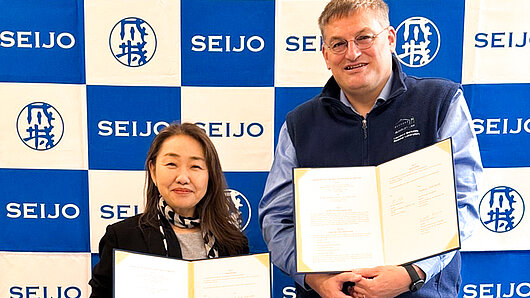High-Performance Computing Center Stuttgart

Situated within the Research Institute for the Humanities and Social Science at Seijo University, the Research Center for Textual Scholarship focuses on improving methods for scholarly editing. Utilizing modern information technologies and digital libraries of manuscripts and other primary texts, the institute develops new methods for reconstructing the processes through which literary texts are written. Such digital tools also make international textural scholarship possible, and the center aims to build bridges between Japanese and Western literary scholarship and resources. Prof. Myojo’s recent research, for example, is exploring at how digital methods could help to develop a more accurate scholarly edition of Franz Kafka’s novel, The Trial.
The collaboration with Seijo University is the newest in a growing number of international collaboration agreements that HLRS maintains with leading academic research centers worldwide. Recently, HLRS entered into a cooperation with the Tallinn University of Technology’s School of Information Technologies, and it continues to work actively with numerous universities in Asia, Europe, and the Americas. The new collaboration agreement also extends HLRS’s efforts to explore intersections between high-performance computing and the humanities, including its participation in the Stuttgart Research Focus (Re-)Producing Realities and research within its Department of Philosophy of Computational Sciences.
— Christopher Williams